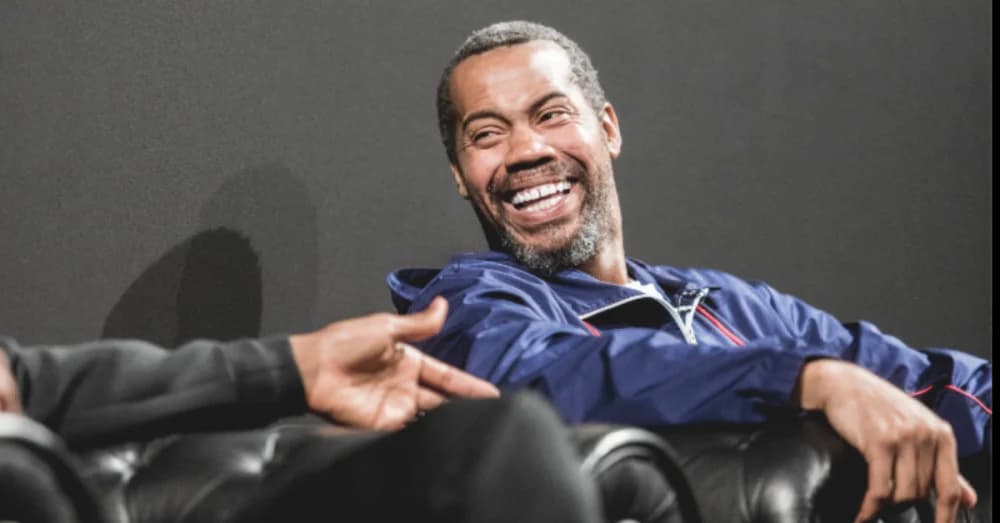Rasheed Wallace Sparks Debate: Was Wizards Michael Jordan Really “More Dangerous”?

Michael Jordan is widely regarded as the greatest basketball player of all time, a legend whose dominance during his time with the Chicago Bulls in the 1980s and 1990s is unmatched. Jordan’s legacy was solidified with six NBA championships, six Finals MVP awards, and countless other accolades that elevated him to icon status. However, former NBA star Rasheed Wallace recently ignited a heated debate by suggesting that Jordan was actually “more dangerous” offensively during his later years with the Washington Wizards than during his prime with the Bulls.
Jordan’s career with the Bulls is the stuff of legend. Over 13 seasons with Chicago, Jordan led the team to six championships, earned five regular-season MVPs, and was named an All-Star 12 times. His relentless drive and unmatched athleticism made him the most feared player in the league. His career averages of 31.5 points per game during his time with the Bulls, including a peak season in 1986-87 where he averaged an astounding 37.1 points per game, are numbers that many consider untouchable.
After his second retirement in 1999, Jordan returned to the NBA in 2001, this time donning the Washington Wizards’ jersey. As a 38-year-old, he was no longer the high-flying, physically dominant force he had been in Chicago. His tenure with the Wizards saw him average 21.2 points per game over two seasons, with his highest average being 22.9 points per game in the 2001-02 season. Although Jordan still made two All-Star appearances, his Wizards failed to make the playoffs, finishing with a combined 74-90 record over his two seasons.
Despite these numbers, Rasheed Wallace, a one-time NBA champion and former Detroit Pistons star, recently argued on “The Sheed & Tyler Show” that Jordan was a more dangerous offensive threat during his time in Washington than he had been in Chicago. “He was a phenomenal player then, but I think he was a little bit more dangerous when he was with the Wizards,” Rasheed Wallace stated.
Wallace elaborated, suggesting that as Jordan’s athleticism waned, his game evolved in ways that made him even more formidable. “He didn’t have the athleticism that we were used to seeing MJ have, but his angles were a little bit more sharp. He was a strong two-guard; you weren’t just gonna move him lightly, and his shot became more dangerous. He became more solid as that veteran player,” Rasheed Wallace continued.
Rasheed Wallace believes that Wizards MJ was more dangerous than Bulls MJ 👀
(🎥 @SheedXTylerShow / https://t.co/RXSDXc7Db8) pic.twitter.com/IdrhAE6sPM
— NBACentral (@TheDunkCentral) August 20, 2024
This perspective is undeniably controversial. While Jordan’s skillset did evolve during his time with the Wizards, allowing him to continue to be effective even as his physical abilities declined, the notion that he was more dangerous at this stage of his career flies in the face of statistical evidence and popular opinion.
Jordan’s career with the Bulls was defined by his explosive athleticism, his ability to take over games at will, and his incredible scoring output. His time with the Wizards, in contrast, was marked by a more cerebral approach to the game, relying on experience and skill rather than raw physical talent. While this transition is impressive and a testament to Jordan’s greatness, it’s hard to argue that this version of Jordan was more dangerous than the one that dominated the NBA throughout the late ’80s and ’90s.
Wallace’s comments have sparked debate among fans and analysts, many of whom disagree with his assessment. The statistics are clear: Jordan’s scoring output with the Bulls far surpassed what he achieved with the Wizards. His time in Chicago was marked by dominance and unparalleled success, while his years in Washington, though respectable, did not reach the same heights.
However, the very fact that this conversation exists underscores the enduring mystique of Michael Jordan. Even in the twilight of his career, Jordan was capable of putting fear into his opponents. He retained his legendary confidence, with Wallace noting that Jordan was still “talking s**t” throughout his final seasons, embodying the competitive fire that defined his career.
Ultimately, while Rasheed Wallace’s claim may be more about respecting Jordan’s ability to adapt and remain effective late in his career, it is a controversial take that challenges the conventional wisdom about when Jordan was at his best. The debate itself highlights the complexities of Jordan’s legacy—he was a player who evolved over time, remaining relevant and dangerous even as he aged, and leaving behind a career that continues to be dissected and admired to this day.





